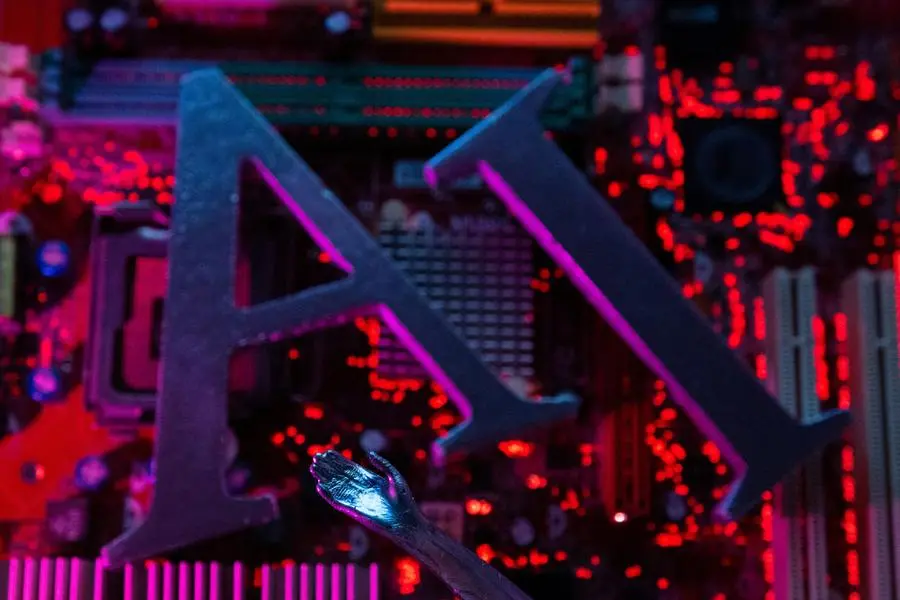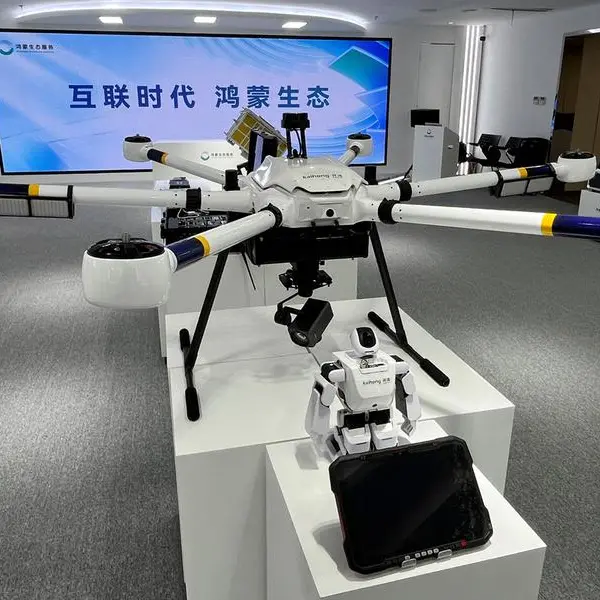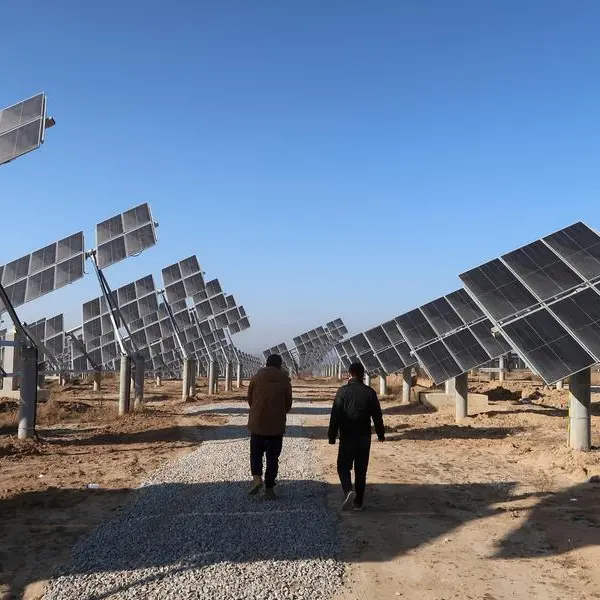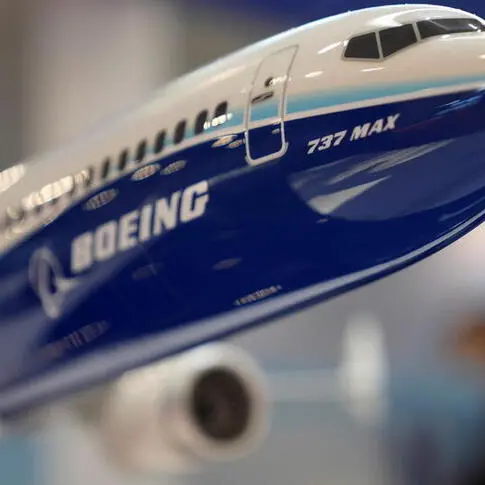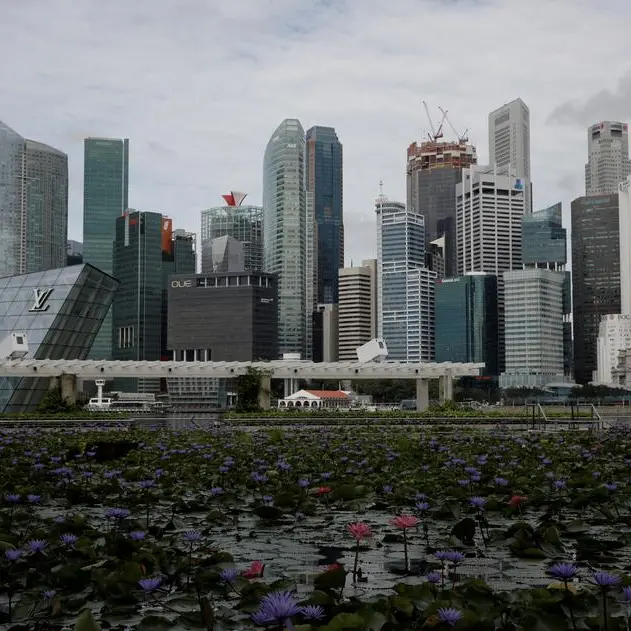PHOTO
MEXICO/LONDON/JOHANNESBURG - Voice actor Armando Plata does not recall promoting a shopping mall in Bogota, narrating a porn movie or advertizing a big bank. Yet his voice comes over loud and clear: schmoozing, sighing and selling with neither permission nor payment.
It was the mild, robotic twang - rather than worry over any memory lapse - that alerted Plata to the fact his voice had been quietly cloned via artificial intelligence, robbing the veteran actor of his key asset, artistic choice and vocal rights.
"I believe that the most cloned and artificially used voice in Spanish is mine," said Plata, owner of a deep and lilting voice, 50-year audio career and president of the Colombian Association of Voice Actors.
Now Plata is organizing with voice actors across Latin America to legislate the "right to own one's voice".
And the group is not alone in what is emerging as a global push for human rights against the precipitous rise of AI.
From South Africa to Europe, Japan to the United States, artists are joining forces to protect their jobs, and their souls, from the ramifications of AI that sounds just like them.
The genesis of the voice grab seemed innocent enough.
It was two decades ago that Plata took part in a paid, text-to-speech project for a firm that later - unbeknownst to him - sold its recorded voices to an AI software company.
Plata's voice proved popular, if of no commercial value - to him at least. As it common in the voiceover business, Plata signed no contract so could not then press any lawsuits.
"At one point we will be able to sue companies and push for class actions. But first, we need governments to recognize the ownership of our voices," the voice actor told the Thomson Reuters Foundation.
HUMAN RIGHT TO A VOICE
This year, approximately 500,000 video and voice deepfakes will be shared on social media sites, according to synthetic media detection company DeepMedia.
Cloning a voice used to cost $10,000 in server and AI-training cost; now startups offer it for a few dollars, according to DeepMedia.
Among high-profile cases of vocal appropriation are Morgan Freeman, whose voice and likeness were used in a faked video to criticize President Joe Biden in April 2023.
Given that an AI clone can come in at about half the cost of a voice artist, let alone a celeb, the technology is tempting.
One Colorado voice actor listed on Voices.com marketplace can be hired for a 60-second radio ad for $500; the AI equivalent costs $200 a minute, about $1 a word. Others cost half that.
Speech-generating AI - such as Microsoft's VALL-E language model - works by sifting through reams of data, categorizing how people speak then using an algorithm - known as a neural network - to replicate human vocal patterns and speech characteristics.
After AI-powered audio production companies launched in Chile this year, the national voice actors' association met with lawmakers to discuss voice ownership as a human right.
Voice actors in Colombia have similarly set up a legislative project to establish the human voice as personal patrimony.
Both legislations aim to serve as a basis for future regulations, such as mandating audio watermarks in all materials generated with synthetic voices.
While copyright laws protect works captured on a tangible medium, be it on canvas or stored digitally, voices fall outside the remit.
Some countries also prohibit deepfakes of celebrities, but there are no laws that govern vocal deepfakes specifically.
PERSONAL INFORMATION?
In Africa, voice artists are looking to protect themselves though there are few AI voice models able to prosper in such a rich mix of regional accents and languages, Andrew Sutherland, a South African sound engineer and voice artist, said.
One vehicle may be the South African Protection of Personal Information Act, under which personal data - voice included - cannot be collected, processed or stored without consent.
A voice could be classed as personal and sensitive data as it may show anything from class to age, said Sutherland, so "a legislator could recognise that and protect it on those grounds."
The South African Guild of Actors is lobbying government to enact policies around performer rights, a tactic mirrored by Japan's main industry body for freelance performers, Arts Workers Japan.
Copyright law in Tokyo sides more strongly with AI than does legislation in other countries, letting companies exploit any language, sound or images for data analysis.
Tokyo, however, may have to bring in protections for actors at the start of their career, as AI can generate similar content instantly and preclude their future success, Michihiro Nishi, a partner at law firm Clifford Chance, told the Thomson Reuters Foundation over email.
Japan has also pushed for new G7 legislation while relying on "superficial" old laws to fill the gaps, according to Megumi Morisaki, an actor who is president of Arts Workers Japan.
The result - scant artistic protection, said Morisaki.
WHO RULES IN AI WORLD WITHOUT BORDERS?
Artists across the world are looking to the European Union's AI Act, which classifies AI tools by potential risk, aiming to lay a global baseline for the use of synthetic voices.
"I'll work with a director in the UK, a producer in Canada, a voice actor in Africa, another producer in Sweden, and then I’m in Los Angeles - so who owns what?" said Tim Friedlander, president of the National Association of Voice Actors (NAVA).
"The internet doesn’t know borders or boundaries."
While there was talk in the United States of AI legislation, Friedlander considers it is now at a political stalemate.
The EU must also do more; specifically, NAVA wants AI voices to sit alongside deepfake images in a high-risk group.
"It doesn't just affect well-known voice actors, it affects anybody who has recorded audio anywhere," Friedlander said, referring to the potential for scams or blackmail.
Industry expects the Act to pass this year but there is no deadline, so those at risk are taking their own precautions.
Spanish-speaking voice actors gathered this year to create the United Voices Organization, which aims to negotiate contracts with fair compensation for AI-related projects.
"We want to ensure that voices are used in an ethical manner, guaranteeing contracts of good faith," said its president Daniel Soler de la Prada.
And while NAVA and the Screen Actors Guild-American Federation of Television and Radio Artists (SAG-AFTRA) have clauses in their contracts to guard against abuse by AI, fewer than one in five workers in the industry is unionized.
Similarly, voice artists are considered freelancers in South Africa and unable to "unionise and collectively bargain for rights and fair market fees and standards," Sutherland said.
Until legislation is global, advocates for the rights of humans hope platforms will pay named voices instead of those startups that sell AI copies fed by data scraped off the web.
"The ethical piece of AI is so prominent now," said Colin McIlveen, vice president of Voices.com.
In an upbeat note, McIlveen said organizations are now looking to ethical sources for voice acting, something they may not have done two years ago when cheap was better than real.
Even Plata - the accidental porn and ad star - believes AI, if duly regulated, can become a new source of artistic income.
"Imagine that in 15 or 20 years from now, when I'm long gone, my family can still own my voice and have it be productive for one or two more generations," he said.
"This can affect me, but also make me transcend." (Reporting by Diana Baptista; Editing by Lyndsay Griffiths. The Thomson Reuters Foundation is the charitable arm of Thomson Reuters. Visit https://www.context.news/)
